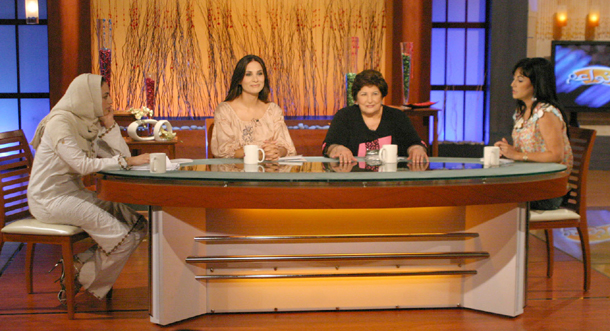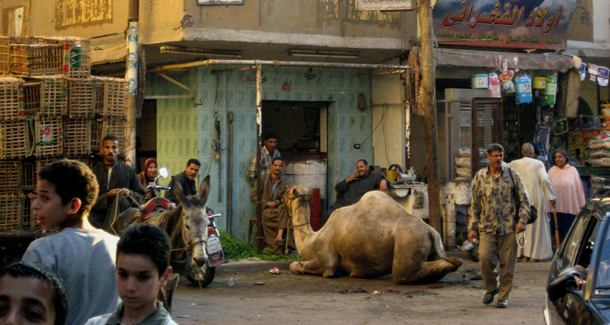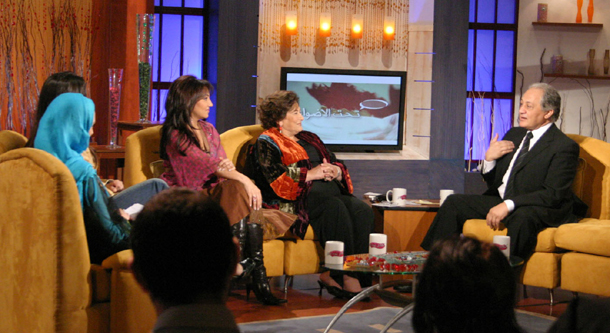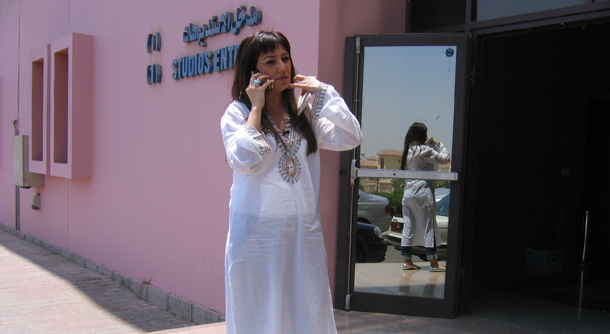by Marda Dunsky
Download the PDF here.
The right of citizens to freely elect representative governments is the hallmark of democratic societies. While this right is not widely enjoyed in the Arab world, democratization in Arab societies has nevertheless taken root — bolstered by media technologies that bypass government control and put the potential for change in the hands of the people.
Along with the Internet, satellite broadcasting has enabled remarkable change in the way that Arab societies, which tend to favor traditional and group-oriented values, engage in discussions about politics and society. Since the early 1990s, satellite broadcasting in the Arab world has proliferated to yield more than 200 channels reaching an audience of approximately 325 million. In 22 countries spanning from Morocco in North Africa to Yemen in the Persian Gulf, this Arabic-speaking audience has a combined population accounting for a quarter of the Muslim world.
Arab satellite channels and networks enjoy the freedom to broadcast content that is largely unrestricted by constraints imposed on state-controlled media. Programming on many Arab satellite channels — prominent among them Qatar-based al-Jazeera, London-based MBC and Lebanon’s small but influential, Hezbollah-run al-Manar — features frank and sometimes controversial reporting and discussion of social and political issues. With opportunities for call-in participation by viewers, such programming is threaded with strands of democratic discourse: freedom of opinion, diversity and respect for minority points of view.
Arab satellite networks trend not only toward democratization but also profit, taking into account many facets of Western commercial broadcasting models including audience demographics, branding and market share. The networks’ ability to serve as conduits for change dovetails neatly with this dual mission. “We provoke thought, we provoke words being exchanged,” observes Rania Barghout, one of four female hosts of the popular MBC program Kalam Nawaem, which translates as “Sweet Talk.” “You cannot stop change. And Kalam Nawaem is part of this change that is happening to [Arab] women.”

photo credit: Kalam Nawaem
Inspired by the popular American talk show The View, Kalam Nawaem has been on the air since 2002 and, like programming across the Arab satellite spectrum, reaches Arabic-speaking viewers not only in the Middle East but also in Europe, Africa and North America. More than one-third of the show’s viewers are male. Barghout, who is Lebanese, has three female co-hosts who are Palestinian, Egyptian and Saudi — the latter of whom, Muna AbuSulayman, is the only one of the four to appear on camera veiled. “I believe in media,” she says. “I’m affected by the images I see on TV and in the movies. So I know from personal experience that when you do things in the media, it does effect change.”
The show has tackled social and political issues that are not always subject to open discussion in Arab society, including masturbation, infidelity, incest and terrorism. “We’ve become part of this whole evolution that’s happening,” says Samar Akrouk, production director for MBC. “Our success is also based on the success of what’s happening on the ground . . . the reality of women wanting to be heard, issues that need to be addressed, people needing to hear these things.”
The freedoms that come with satellite broadcasting are not unlimited or absolute. Produced by Arabs for Arab audiences, programming content often acknowledges and defers to Arab social norms, with self-regulation replacing state-imposed censorship. To address the topic of homosexuality, which is considered a criminal act in much of the Arab world, Kalam Nawaem has interviewed a gay Arab man over the phone rather than on camera and an Arab actor who has portrayed a gay character in film. To balance presentation of such controversial issues, Arab satellite talk shows also routinely include the perspectives of Islamic religious authorities.
While not hindered by direct state control, Arab satellite TV is vulnerable to supra-governmental checks emanating from the region. In February 2008 information ministers of all 22 member states of the Arab League except Qatar approved a charter calling for Arab channels “not to offend the leaders or national and religious symbols” of Arab countries and proclaiming that Arab satellite broadcasts “should not damage social harmony, national unity, public order or traditional values.” Backed mainly by Saudi Arabia and Egypt, the charter, while not legally binding, authorizes signatory countries to revoke, freeze or cancel permits of media outlets seen as breaching the guidelines. Qatar-based al-Jazeera protested the charter, calling it “a risk to the freedom of expression in the Arab world.”

photo credit: Benny Jansen
As an agent of indigenous and evolutionary change, Arab satellite broadcasting plays a key role in democratization of the region — and as such is also particularly relevant to American interests and policy goals in the Arab Middle East and, by extension, throughout the Muslim world in the post-September 11 era. Since 2001, the Bush administration has utilized military intervention and public diplomacy to advance the goals of democratization, nation-building and winning hearts and minds in Arab and other Muslim-majority nations. Results of these policies, however, have been mixed.
American military intervention brought about the fall of autocratic regimes in Iraq and Afghanistan and has facilitated democratic processes and institutions in these countries. However over the better part of a decade, the social changes needed to ensure the sustainability and success of these developments have yet to crystallize, and they likely will be a long time in coming — the result of internally generated evolution as much if not more than externally imposed revolution.
Since Sept. 11, 2001, the Bush administration has appointed four undersecretaries of state for public diplomacy, the first three of whom, through 2007, presided over a string of stalled or failed initiatives. These have included efforts to reform women’s roles and educational processes in Muslim societies and injecting a new wave of U.S. government-supported, Arabic-language media in Arab countries. Nearly $500 million in U.S. tax dollars has been spent since 2002 to fund the Arabic-language Sawa radio station and al-Hurra television network, but these American-produced Arabic media have had minimal, if not counterproductive, effects in promoting U.S. interests and policies in the Arab and Muslim worlds, according to a joint investigation by CBS News’ 60 Minutes and the independent ProPublica that was broadcast and published in June 2008.
The investigation found that Arab viewers have found al-Hurra to lack journalistic credibility and that audience share has been limited to between 2 percent and 8.5 percent. The report further documented that American managers of Sawa and al-Hurra neither speak nor understand Arabic and cannot monitor or understand the content of the programming that they direct.

photo credit: Kalam Nawaem
Enabled by satellite broadcast media, Arab citizens — not, by and large, their governments — are at the forefront of democratization, and democratization will likely remain a key focus of U.S. interest and involvement in the Arab world for decades to come. This process, however, is slow-going and subject to pressures and influences from within and without. U.S. policies aimed at advancing the process have thus far has sought to inject American values via hard-power and soft-power interventions alike.
The degree to which this American role will include listening to and understanding Arab voices is an open question. For now, clues to how democratization will continue to unfold and whether U.S. policies will ultimately contribute to its success can be heard on Arab satellite TV, echoed in the words of Fawzia Salama, the Egyptian co-host of Kalam Nawaem:
“We are a traditional conservative society. There is a common value system that we all share. And this value system,” says Salama, “stems from the notion of stability, of resistance to change. And if you try to break that mold, you won’t have an influence at all. I don’t think the Arab world takes very kindly to revolutions; I would say it’s an evolution. Gently, gently does it, in the Arab world.”
Marda Dunsky teaches the “Reporting the Arab and Muslim Worlds” seminar at DePaul University in Chicago. She is the author of Pens and Swords: How the American Mainstream Media Report the Israeli-Palestinian Conflict, published by Columbia University Press in 2008.

